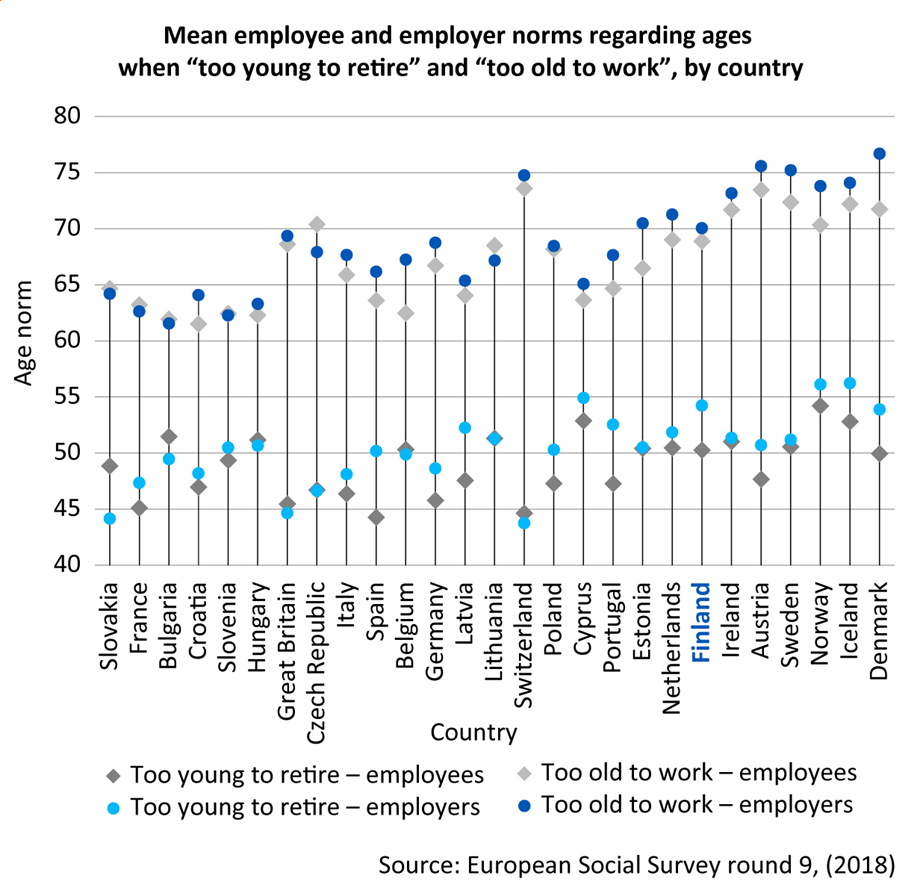Employers more positive towards late retirement than employees

In Finland, employers’ views on the appropriate retirement age, that is, their retirement age norms, are higher than in European countries on average. Overall, employers have higher retirement age norms than employees in most countries. This is evident in a fresh study by the Finnish Centre for Pensions.
According to the study, employers’ retirement age norms differ across Europe. They are higher in countries where the statutory retirement age is higher. The retirement age norms in the Nordic countries (Denmark, Iceland, Norway and Sweden) exceed those in other European countries.
On average, Finnish employers’ find that 70-year-olds are too old to work and 54.2-year-olds are too young to retire. Compared to other European countries, Finnish employers’ retirement age norms are above average. The lowest retirement age norms are in Slovakia, France and Bulgaria.
“A country’s statutory retirement age seems to be strongly related to its retirement age norms”, says Senior Researcher Aart-Jan Riekhoff (Finnish Centre for Pensions).

Country-specific age norms underlie retirement age norms
Culture-specific age norms significantly impact retirement age norms since in each country, the retirement age norms of employers and employees are very similar.
“Overall, European employers’ retirement age norms tend to be higher than employees’. Employers seem to take a more positive stance than employees on working at increasingly older ages and deferring retirement”, Riekhoff sums up.
Studying retirement age norms important from the point of view of extending working life
This study explores how the retirement age norms differ in 27 European countries. The study has analysed the age interval between “too young to retire” (the lower boundary of retirement age norms) and “too old to work” (the upper boundary) per country. These age limits are assumed to affect employers’ decisions to recruit and train employees.
According to Riekhoff, studying retirement age norms is important from the point of view of extending working lives.
“Policy measures with which working lives are extended at the end of working life may be inefficient if employers are unwilling to employ and retain older employees”.
Research publication: Employers’ Retirement Age Norms in European Comparison (Work, Aging and Retirement)
